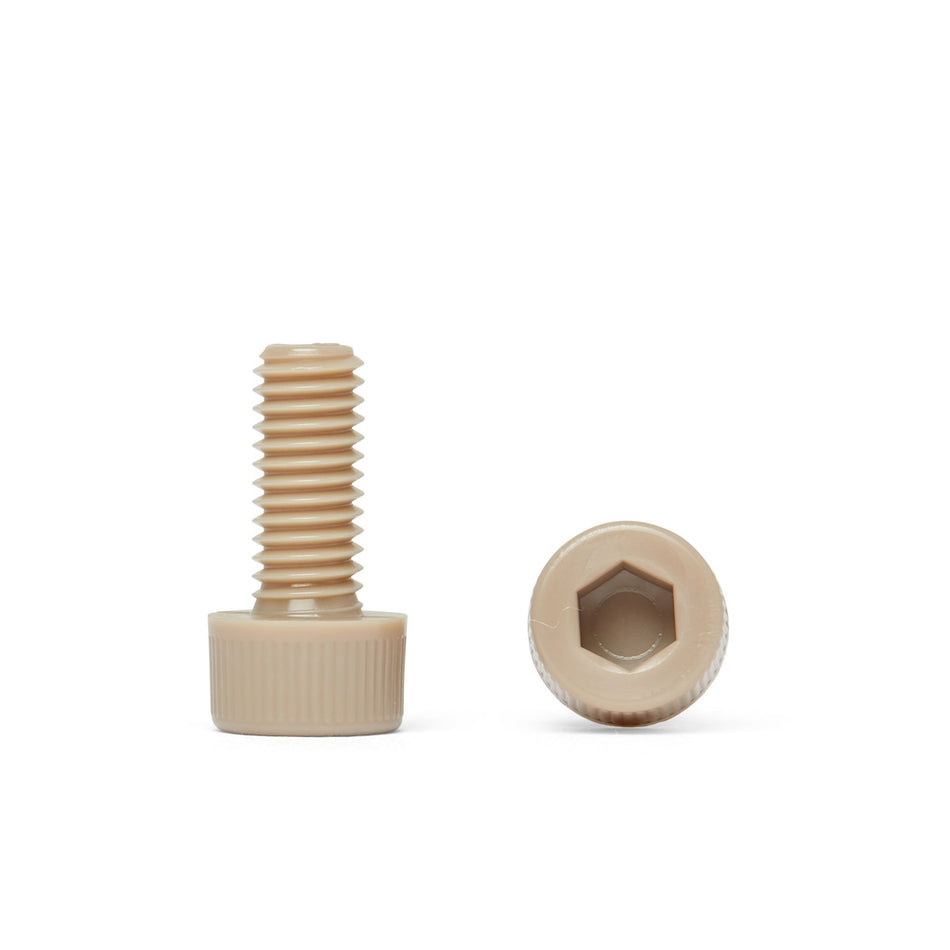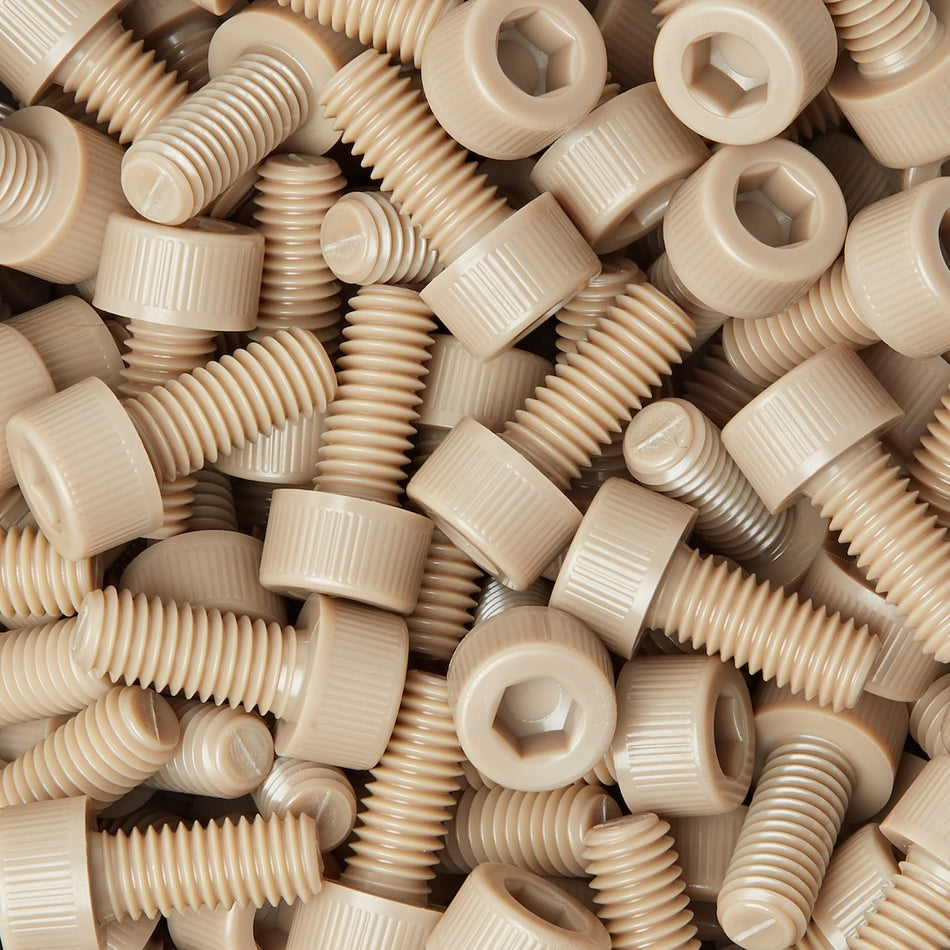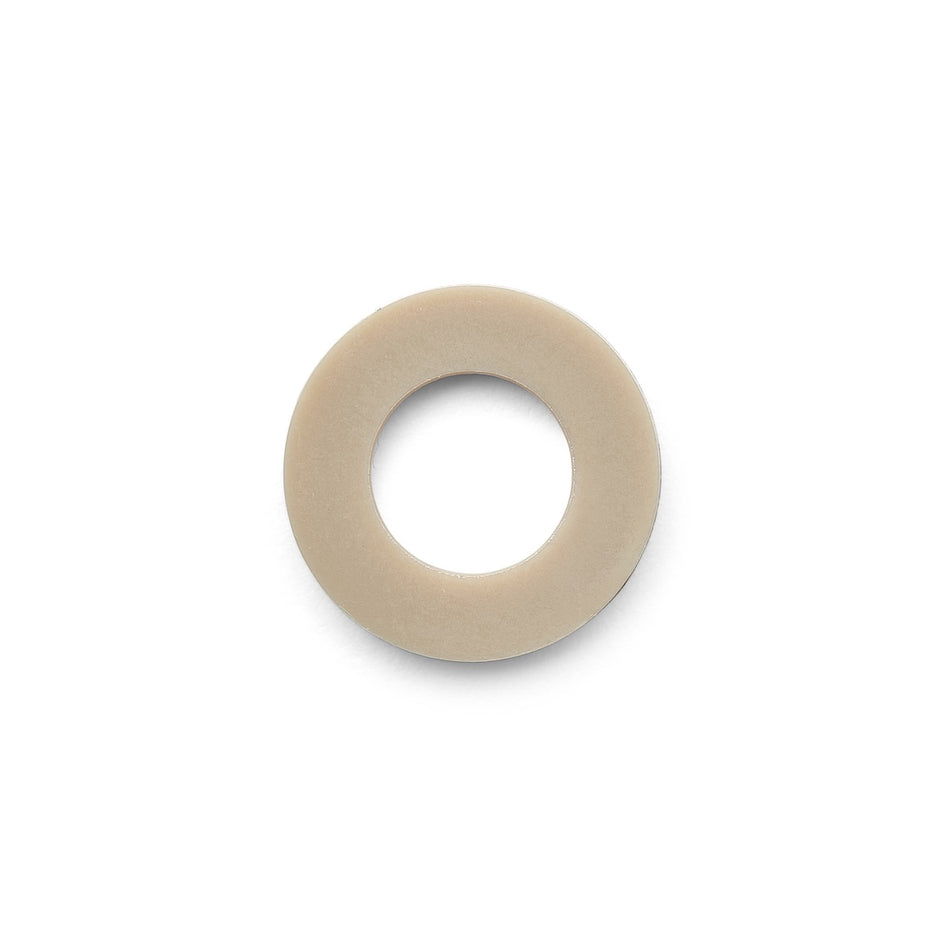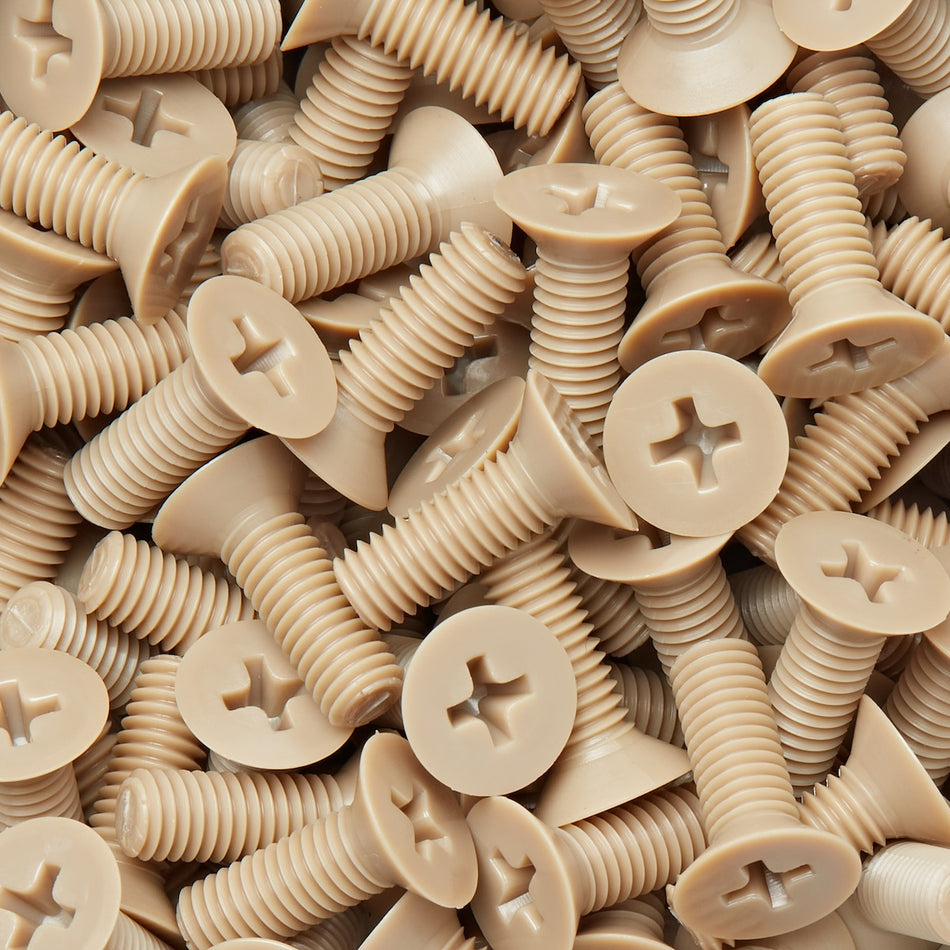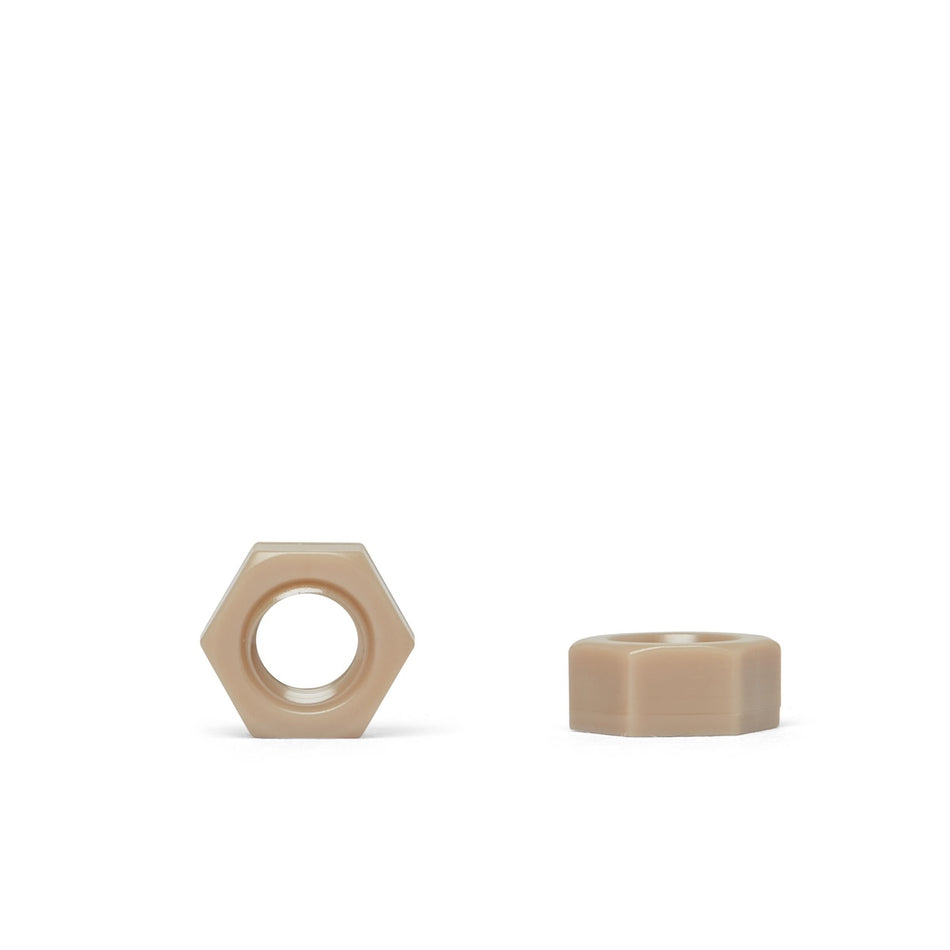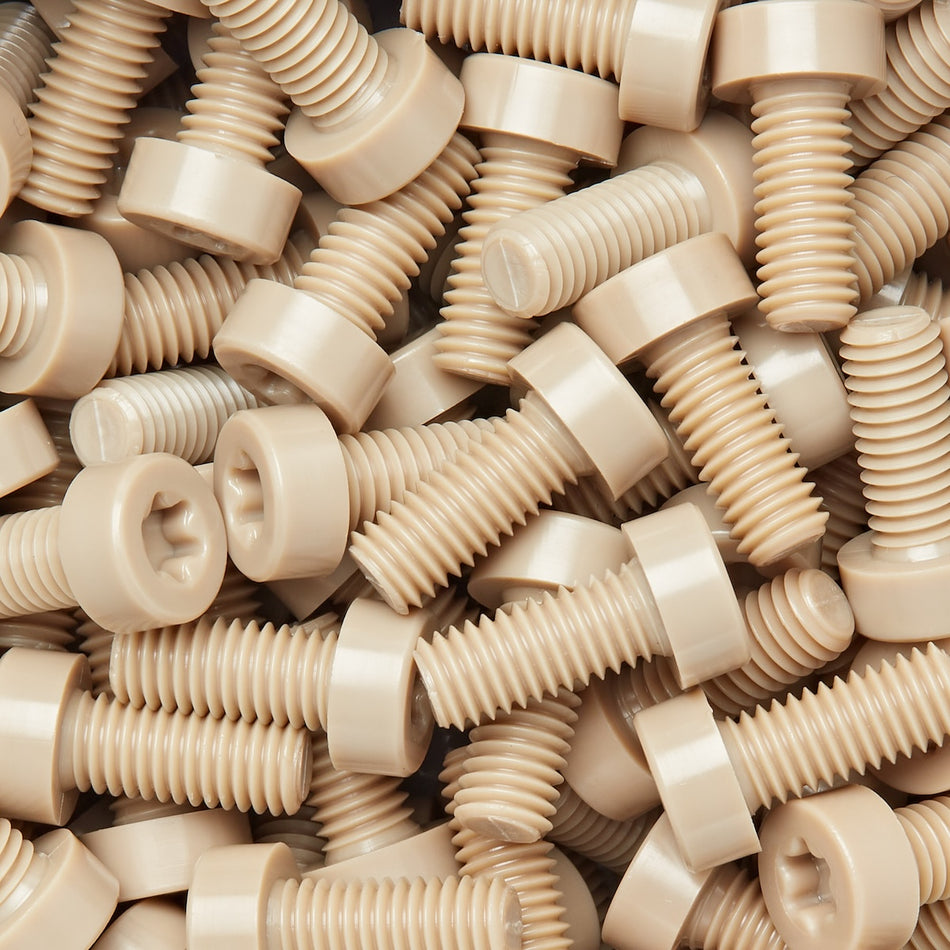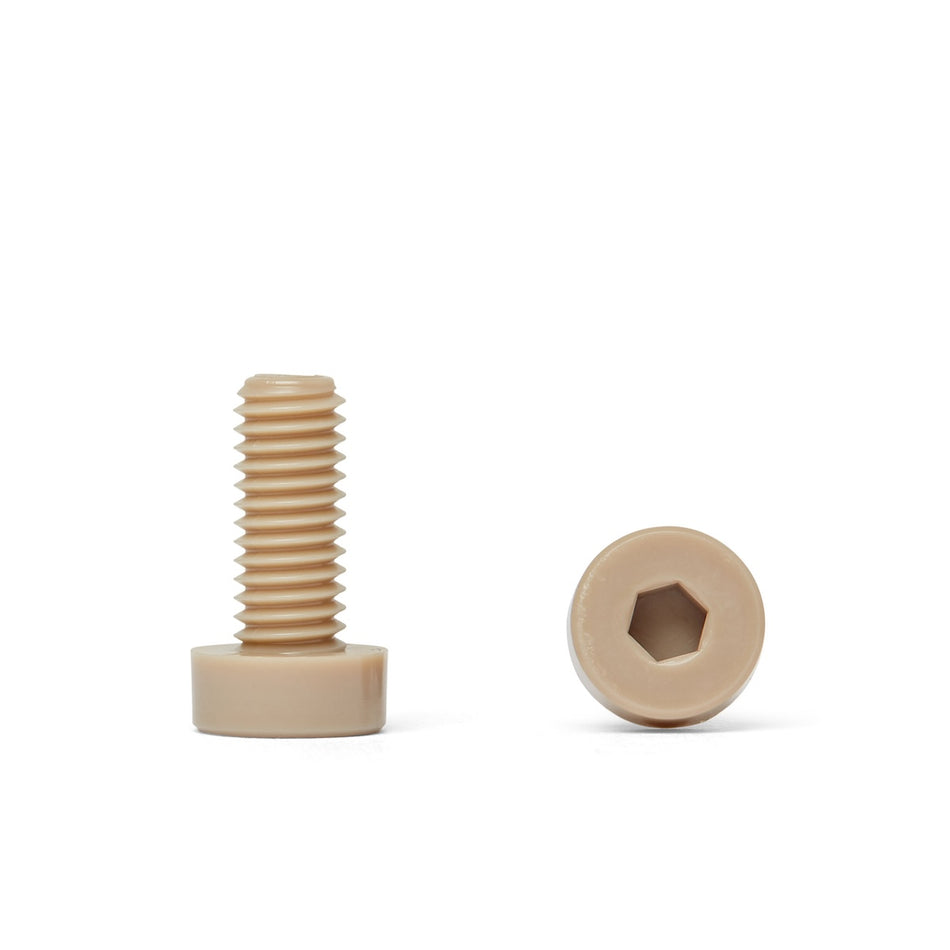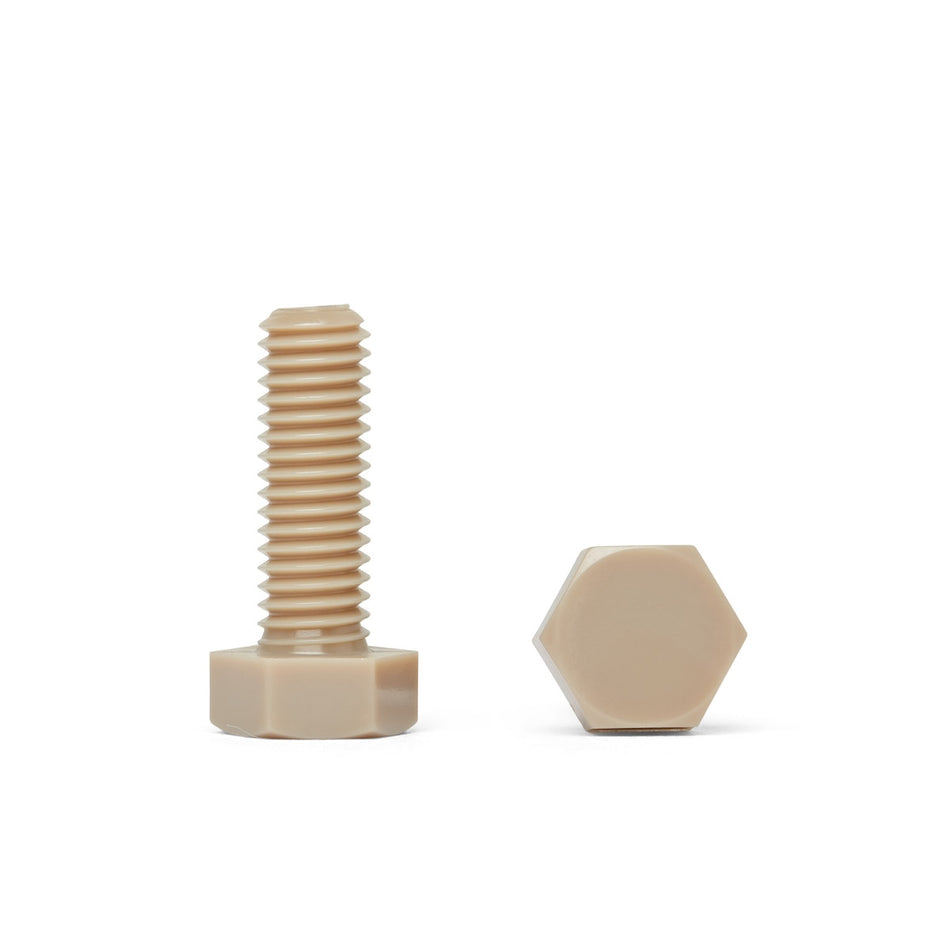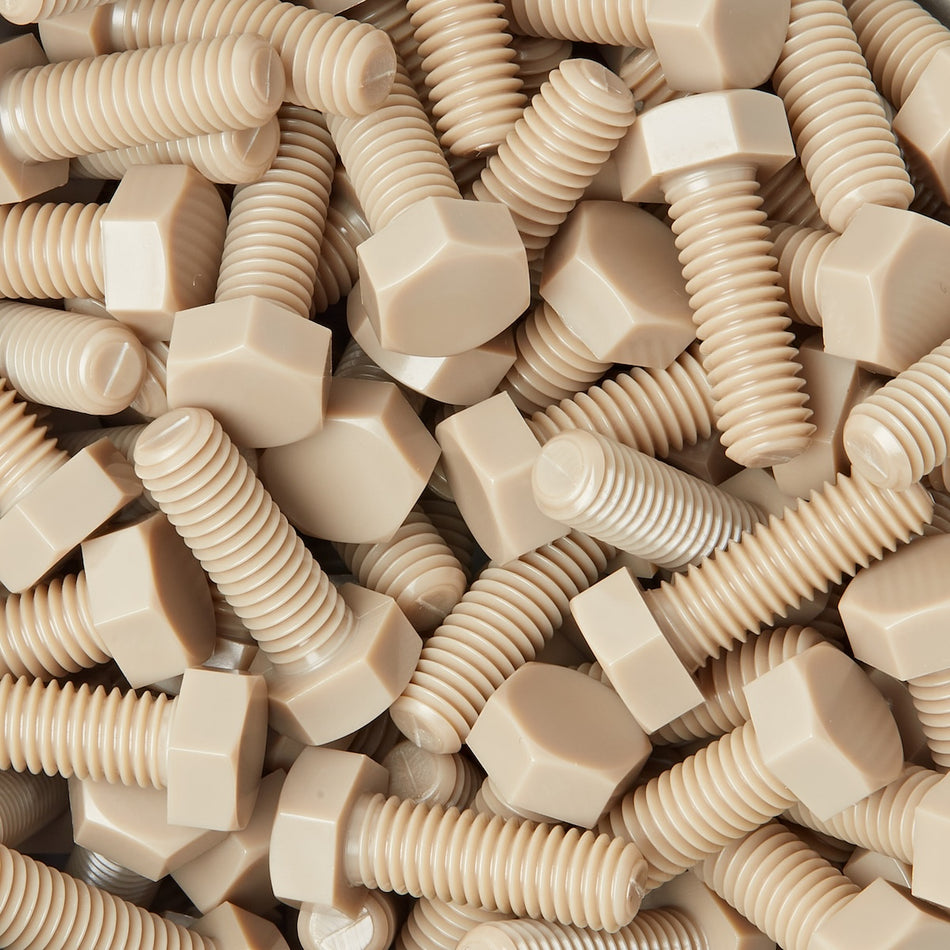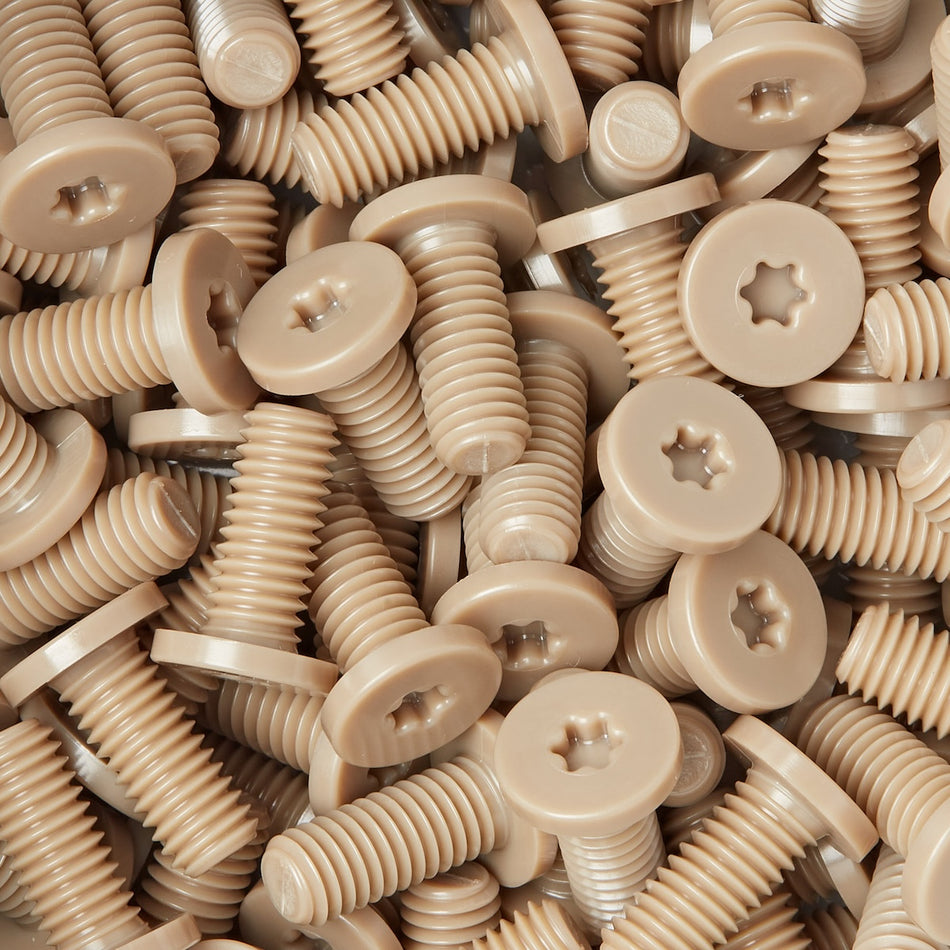101 Products
Polymer screws, nuts, bolts, and fasteners may be used in a variety of applications related to the design, construction, and operation of nanopore technologies. These types of fasteners are made from a variety of polymers, such as plastic, rubber, or composite materials, and are designed to be strong, durable, and resistant to corrosion.
One potential use of polymer fasteners in nanopore technologies is in the construction of the nanopore devices themselves. Polymer fasteners may be used to secure and fasten together the various components and subsystems of a nanopore device, such as the nanopore, the sensing element, the amplifier, the control electronics, and the housing. Polymer fasteners may be preferred over metal fasteners in certain situations due to their lighter weight and resistance to corrosion.
Polymer fasteners may also be used in the maintenance and repair of nanopore devices. For example, polymer fasteners may be used to secure and fasten together the various parts and components of a nanopore device housing, such as the top and bottom covers, the sides, and the feet. Polymer fasteners may also be used to secure and fasten together the various parts and components of the control electronics, such as the printed circuit board, the connectors, and the switches.
Overall, the use of polymer screws, nuts, bolts, and fasteners can help to improve the performance, reliability, and durability of nanopore technologies, and may play an important role in the design, construction, and operation of these devices.
Nanopore technologies are a type of biotechnology that involves the use of nanopores, which are tiny holes or channels that are typically less than 100 nanometers in size, to study biological molecules and systems. Nanopore technologies are used in a variety of applications, including DNA sequencing, protein analysis, and drug discovery.
One of the main advantages of nanopore technologies is their ability to provide high-resolution, real-time information about the structure and function of biological molecules, such as DNA and proteins. This is achieved by using nanopores to physically "read" the sequence of nucleotides in a DNA molecule, or to measure the size, shape, and charge of proteins and other biomolecules.
There are several different types of nanopore technologies, including:
-
Solid-state nanopore technology: This type of technology involves the use of nanopores that are fabricated in solid materials, such as silicon, silicon nitride, or silicon carbide.
-
Membrane-based nanopore technology: This type of technology involves the use of nanopores that are formed in synthetic or natural membranes, such as lipid bilayers or biological membranes.
-
Enzyme-based nanopore technology: This type of technology involves the use of enzymes, such as helicases or polymerases, to create and manipulate nanopores in DNA or RNA molecules.
Overall, nanopore technologies are an important tool for studying biological molecules and systems, and have many potential applications in the fields of biotechnology and medicine.


